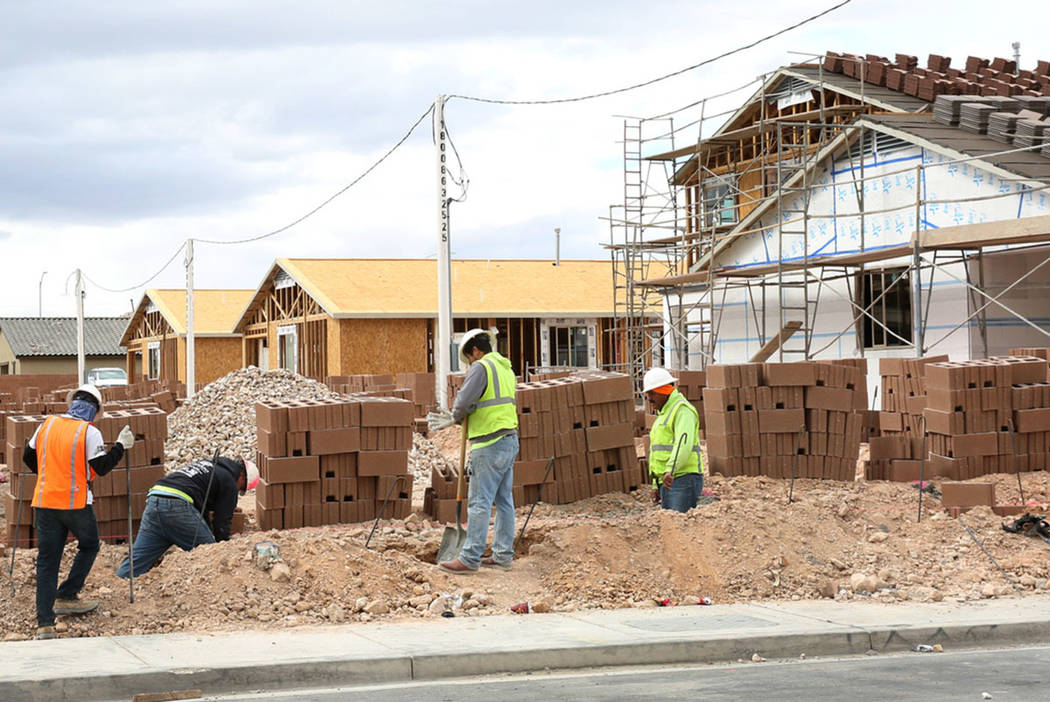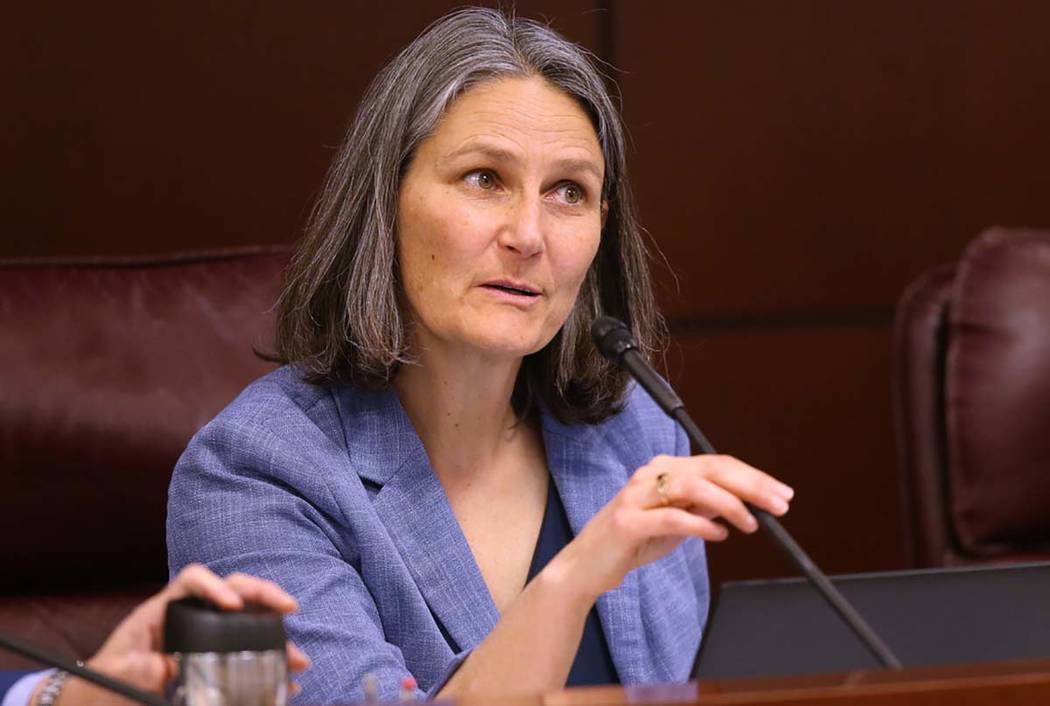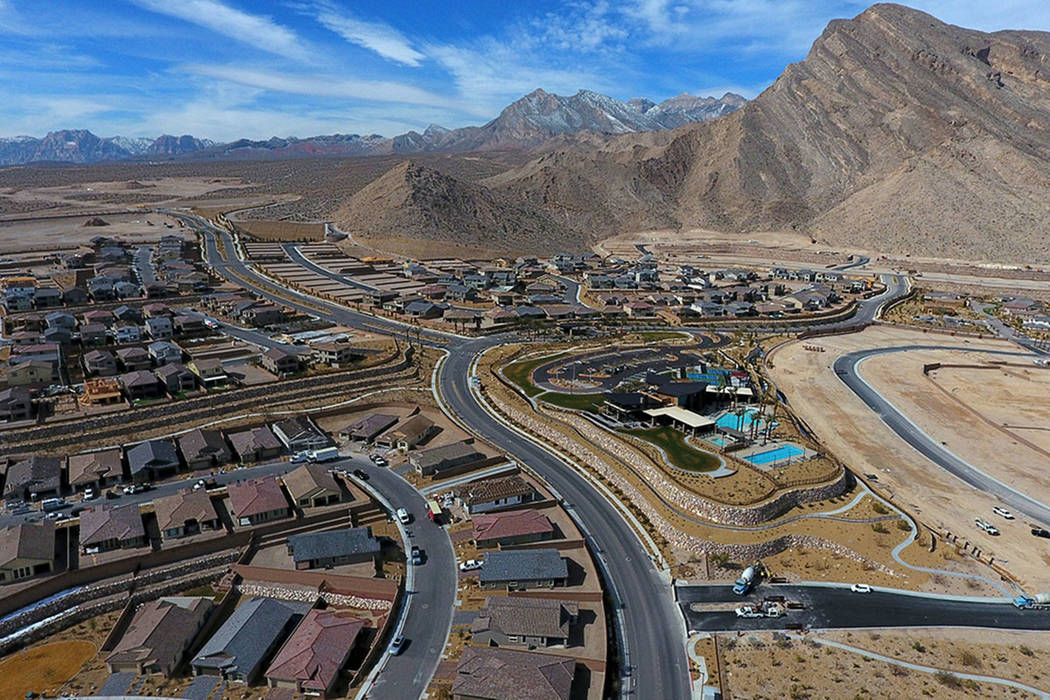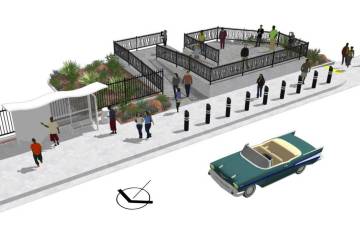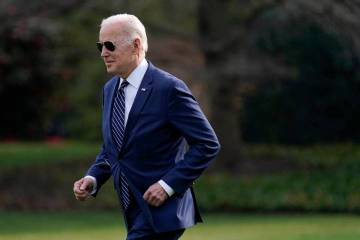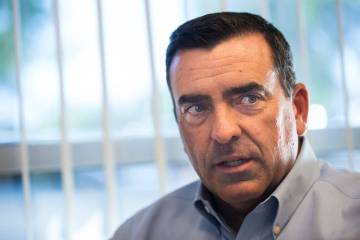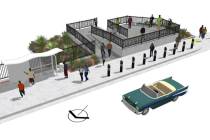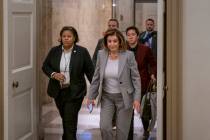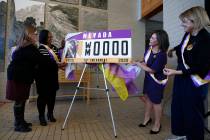Nevada lawmakers tackle widening affordable housing gap
Facing one of the worst affordable housing shortages in the country, Nevada lawmakers are hoping the 2019 Legislature can mark a turning point.
With just more than a month left in the session, a package of bills aimed at addressing the issue is inching closer to the governor’s desk. Those proposals range from direct investment of state dollars to empowering local governments to get involved and stronger tenant protections.
Despite the proposals, many of which have received bipartisan or unanimous support, advocates and lawmakers alike understand that problem won’t — and can’t — be fixed in a single session.
“There is no silver bullet when it comes to affordable housing,” Sen. Julia Ratti, D-Sparks, said while presenting a handful of those bills to an Assembly committee Tuesday.
The issue of affordable housing is not necessarily a new one: Multiple studies released last year pointed to the widening affordable housing gap across Nevada. Nor is it unique to Nevada, with states such as Colorado, California, Oregon, Washington, Arizona and Texas facing similar problems of low supply and rising costs.
The causes are multiple and vary depending on whom you ask. But the problem itself is more straightforward: There aren’t enough affordable homes to meet the demand.
And that needs to change, Ratti said in a follow-up interview.
“We can invest all of these dollars in health care, social services, education,” Ratti said. “But if somebody isn’t housed, the investments that we’re putting into all of those things end up not being as effective as they could be because the person doesn’t have any housing.”
Nevada lags
Home prices have continued to rise in Nevada as the state rebounds from the Great Recession, reaching heights in 2018 that haven’t been seen since before the downturn.
The average monthly rent for apartments in Southern Nevada jumped by nearly $200 from 2013 to 2016, according to a 2018 report from the Nevada Housing and Neighborhood Development , a nonprofit that develops and manages affordable housing in Clark County.
And when it comes to available affordable housing, Nevada ranks as the worst in the country, according to the National Low Income Housing Coalition.
That’s especially true for those considered extremely low-income, a group that often includes those living off Social Security or those with disabilities. For those in that income bracket, there are just 14 units available for every 100 people or families in need in Southern Nevada, according to the coalition’s data.
As costs for both rent and home prices continue to rise, the issue of available affordable housing extends beyond the low-income, according Mike Shohet, chief real estate development officer for Nevada Housing and Neighborhood Development.
In Clark County, 250,000 people — or roughly a quarter of the work force in Southern Nevada — fall into what HAND calls the “missing middle.” Those are people earning between 60 and 120 percent of the median income in the area, a large chunk of which includes teachers and those who work in the service industry on the Strip.
People in that income range typically don’t qualify for any kind of housing aid programs, but the costs are quickly becoming out of reach. And as those prices continue to trend upward over the next five to 10 years, that gap will only grow, Shohet said.
“They are going to get squeezed,” Shohet said.
And for those who are able to find housing, the rising costs are becoming more problematic. Nearly four in 10 Nevadans are considered rent- or home-burdened, meaning they spend at least 30 percent of their monthly income on housing.
And for the poor in Southern Nevada, the numbers are staggering: For those in the extremely low-income bracket, 95 percent of people are considered home-burdened, and 83 percent spend more than half of their income each month on rent payments.
And with such a large chunk going towards housing, it forces people to skimp elsewhere.
“We hear stories about seniors cutting their pills in half to make them last longer,” Shohet said. “For families, it’s putting food on the table for children or school supplies.”
Addressing the problem
Several bills are making their way through the session in Carson City. Some attempt to give local governments more power in addressing the issue, and others offer protections for tenants as rent prices continue to rise.
The goal, Ratti said, is to get multiple levels of government, as well as the private and nonprofit sectors, involved in addressing the issue.
“We have to decide as a state, as local governments across the state, how we are going to provide when it comes to housing for all Nevada,” she said.
The most direct investment, and likely most immediate impact, would come from Senate Bill 448, which would set aside $10 million in state dollars via tax credits to build affordable housing in Nevada.
Now, 95 percent of the affordable housing in Nevada was built using funds through the federal government’s Low-Income Housing Tax Credit program, and about 1,000 to 1,200 new units are built using that credit each year. Ratti said the state investment from SB448 would add about 600 new units in the state — 60 percent more.
“For the 600 families that get those units, it makes a huge difference in their lives,” Ratti said.
While SB448 and most of the other housing bills received unanimous support in the Senate and are being considered in the Assembly, some of the other bills up for debate are giving some Republicans and builders’ groups pause, namely Senate Bill 398.
SB398 would give local governments the ability to enact local ordinances geared towards affordable housing, such as waiving fees associated with such projects to help bring down the final cost.
But some Republicans and builders’ groups worry that SB398 could lead to local governments enacting ordinances such as rent control or inclusionary zoning ordinances, which would require developers to offer a certain percentage of their projects as affordable housing. And the potential for those kinds of local laws, which come with more regulations, could lead to developers choosing not to build in the cities that most need more housing, such as Reno and Las Vegas.
Don Tatro, CEO of the Builders Association of Northern Nevada, said during the Tuesday hearing that the bill is essentially “asking one industry to solve a community problem.”
Ratti considered a conceptual amendment to another bill that proposed rent control ability for local governments, but it was withdrawn. But Ratti disagreed with the the assertion that those types of local laws are the inevitable outcome of SB398. She said the bill leaves those decisions up to local governments, which are best situated to make those kinds of decisions based on the needs of their areas.
“Both from the place of what’s humane and what’s right for that individual human being, and from the place of what makes sense for the taxpayer, we have to do smart investments, targeted investments,” Ratti said. “Make sure we have federal government, state government, local government, private sector and philanthropic agencies all rowing in the same direction to say that in Nevada, everybody deserves safe, clean affordable housing, and we need to figure out how to get there.”
Contact Capital Bureau Chief Colton Lochhead at clochhead@reviewjournal.com or 775-461-3820. Follow @ColtonLochhead on Twitter.



